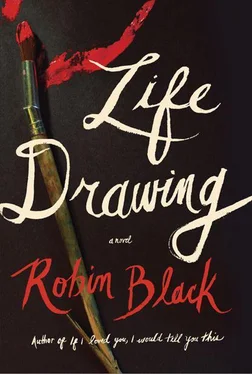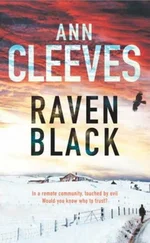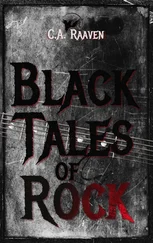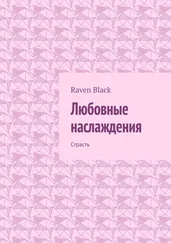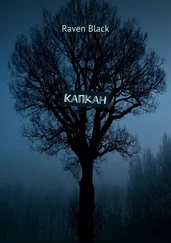“Are you painting yet?” I asked. “Are things set up?”
She told me she’d been shifting things around, still trying to work out which spaces were for what. “But I think I know which room will be the studio. And I heard from Nora today,” she said, her voice brightening. “Just a note, but that was nice. She’s zeroing in on when she’ll be here. Probably early September. She’s in Florence now, and I have a hunch that there may be a boy, though she didn’t say so outright. I am reading between the pixels — or whatever they are.”
“You must be very close. If you can read what she isn’t saying.” I wondered if I could do that with Laine, though it was hard to imagine Laine leaving much unsaid — a thought that made me smile.
“Oh, we are close. We truly are, which is such a gift, I know. Not to say we don’t have our moments, but isn’t that the case with all mothers and daughters?”
“I suppose.”
“It’s hard for me to believe she’s so grown now. Gallivanting over Europe. It’s a cliché but I think she’ll always be a child to me. In my mind, she froze somewhere around five.”
“I imagine it’s hard to keep up.”
“It is. You just blink and they’re adults.” She took a long sip of wine.
“We wanted to have children,” I said — something I hadn’t said out loud in years, a sentence gathering dust among all the other unspeakable ones. I could barely believe the words had slipped out, escaped while I had been busily pushing other subjects out of mind. “But it would have meant all kinds of interventions. And complicated decisions and then there was the thought of adopting, but …”
But Charlotte had been so ill then. Charlotte, who had never married and had only her sisters to see her through. The two crises had somehow collided, competed for space. Dying had won. “We didn’t do it. Obviously.”
“I’m so sorry.” Alison kicked her sandals off, tucked her feet up under herself. “Do you still talk about it?” she asked.
“Not really.” I hoped she wouldn’t ask for more details. Owen would have been horrified at my chatting to the new neighbor about his negligible sperm count, and I didn’t have the imaginative energy just then to make something up. “Owen … well, Owen is very much one for just moving forward. He doesn’t really do regret.”
“Perhaps I’m a bit that way too,” Alison said. “Not doing regret — which is good. Because I could easily waste decades if I did.”
It had been so long since I’d had this sort of talk with another woman. I had forgotten how smooth the glide into intimate subjects could be. “Do you mean your marriage?” I asked. “You said that was difficult.”
“That. Yes. My husband, Paul, well, it was all very turbulent. Awful, actually. I suppose the phrase is ‘anger management issues.’ He has anger management issues. So it was very hard at times. To put it mildly. Though without the marriage there’s no Nora. So nothing’s simple, is it? Least of all regret.”
“I’m so sorry. That sounds terrible. You stuck it out a long time.”
“Just about twenty years.” She took a sip of wine, the last in her glass. I pointed to the bottle, and she nodded. “Yes, thanks. Some of it was just Nora, I suppose. Not wanting to put her through the whole broken-home thing. And also …” She hesitated. “Also, I didn’t want Nora alone with him when she was young.” She shook her head. “That came out wrong. I don’t mean anything lurid. Paul’s not that sort at all. I just knew from years of experience that if I was there, his anger got directed to me. And if she started spending lots of time with him, alone … I worried. Maybe without reason, but I felt better having her under my roof. Even if it meant having him there too. But then once she went off to school, it was just … just untenable.” She closed her eyes briefly, shook her head. “Awful,” she said. “I’d thought I was the witness holding the worst of him back, but then it turned out that Nora had been.”
“How horrible,” I said. “I can barely imagine.”
“Yes, it is. It was,” she said. “Which is why I don’t look back too much.”
“Owen and I don’t really dwell on the past, either. Maybe because we’re so alone here. There’s no one to talk to who didn’t live through all the events.” But I knew it wasn’t our solitude that had shut down so much of our history. It was our history that had produced our solitude. “We … we talk our way through the facts of each day. It’s raining. The garden needs weeding. Look what’s in the paper. We rarely get into the past. Though I think that’s more Owen than me.”
I was making a choice. I could feel it. Maybe the wine was fueling that choice, but I would confide in Alison about Owen. I wouldn’t divulge our real secrets, but I would say things to her that I wouldn’t say in front of him. About him. About us.
“No marriage is entirely easy,” I said. “Even the ones that last.”
“Well, I wouldn’t know about the ones that last.” Alison laughed a little. “I might have settled for one that was only difficult.”
I asked her if she was still in touch with the ex.
“Not at all,” she said. “Nora sees him. I do not. Emphatically. Do not.”
“It must be strange,” I said. “Being that intimate with someone for so long and then … Nothing.” Bill entered my thoughts, again. We had been so intimate. And then nothing. I took another sip of wine.
“Oh, I am big on fresh starts. Second chances. Third, if necessary.” Alison looked at her glass, empty again in her hand. She put it down and stood. “I’m now going to wobble my way home and probably pass out. And after that, I need to get back to setting things up.”
At the kitchen door, I thanked her. “It was a tough day,” I said. “This made it a much better one.”
She smiled. She said, “For me as well.”
When she’d gone, I returned once again to the painting over the fireplace — as if it and I had unfinished business, as perhaps we did. I stared at Ida’s arm. Navy blue serge. Two brass buttons at the cuff. Her hand obscured by a cascade of lilac taffeta. Her elbow, just beyond the painting’s edge.
How often had I wished I could pull on that sleeve? How many times had I ached to tug at the cloth, as if to get her attention; and guide the woman herself to the center of the scene.
A painter looks. That’s what she does.
But she doesn’t always look in the right direction.

Within a matter of days, having Alison next door felt close to normal — except to the extent that the novelty of her presence was itself a positive. Any early irritation at being intruded on had dissolved. And though she and I didn’t immediately form a habit of lengthy visits back and forth, or take the walks that would later become regular in our days, we chatted in the yard a bit now and then and waved from one porch to another. When she picked up her mail, she left ours on our step; and when I got there first, I did the same for her. And during that time, I felt the strangely unfamiliar pleasure of making a friend. How long had it been since I had last done that? It had been years. Maybe it had been my entire life — in a way. Charlotte had always been my closest friend, the girl and then the woman in whom I could confide anything. But there was a difference here, because in part that had been because Charlotte knew me so well. And with Alison, some aspect of the pleasure was that she didn’t know me at all. The air around us was clear, unfilled with history. I had a chance to recast myself afresh. Or anyway I believed that I did, and weary of my own prior mistakes and missteps, I reveled in that.
Читать дальше
